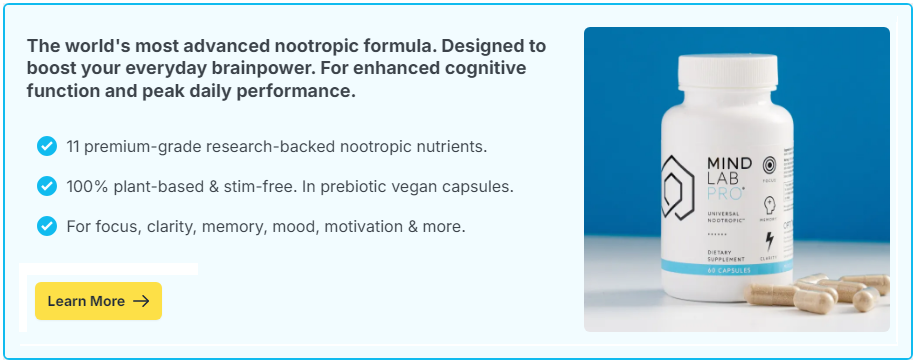
Brain fog is a frustrating cognitive state that leaves people feeling mentally sluggish, unfocused, and easily distracted. Whether it’s caused by lack of sleep, stress, or poor nutrition, brain fog can make even simple tasks seem overwhelming. In search of solutions, many turn to stimulants and nootropics to regain clarity. Two of the most widely used cognitive enhancers are caffeine and modafinil.
Caffeine is a common stimulant found in coffee, tea, and energy drinks, while modafinil is a prescription drug used to promote wakefulness. Both have their advantages and disadvantages, but which one is more effective at eliminating brain fog?
Contents
Understanding Brain Fog: Causes and Symptoms
Before comparing caffeine and modafinil, it is important to understand what brain fog is and what causes it. While not a medical diagnosis, brain fog is a collection of symptoms that include:
- Difficulty concentrating or staying focused
- Slower information processing
- Forgetfulness and poor short-term memory
- Persistent mental fatigue
- Lack of motivation or mental sharpness
Several factors contribute to brain fog, including:
- Sleep deprivation: Poor sleep quality negatively affects cognitive function.
- Chronic stress: High cortisol levels interfere with memory and concentration.
- Dietary deficiencies: Inadequate intake of essential vitamins and minerals can impair brain performance.
- Blood sugar imbalances: Fluctuations in glucose levels lead to mental fatigue.
- Hormonal shifts: Thyroid dysfunction and other hormonal imbalances can contribute to cognitive sluggishness.
- Inflammation: Chronic inflammation in the body has been linked to slower cognitive function.
Caffeine and modafinil each target different pathways in the brain to help counteract these effects, but they do so in distinct ways.
Caffeine: The Popular Stimulant
How Caffeine Works
Caffeine functions by blocking adenosine, a neurotransmitter responsible for promoting sleepiness. By preventing adenosine from binding to its receptors, caffeine increases wakefulness. It also triggers the release of dopamine and norepinephrine, which can enhance focus and alertness.
Benefits of Caffeine for Brain Fog
- Provides a rapid boost in mental alertness, often within 15 to 45 minutes
- Widely available and inexpensive
- May improve memory and cognitive performance
- Contains antioxidants that support brain health
Downsides of Caffeine
- Short-lived effects, usually lasting only four to six hours
- Builds tolerance over time, reducing effectiveness
- Can cause jitteriness and anxiety in sensitive individuals
- Often leads to crashes, especially after high doses
- May disrupt sleep if consumed later in the day
Modafinil: The Smart Drug
How Modafinil Works
Modafinil is classified as a wakefulness-promoting agent rather than a traditional stimulant. It enhances cognitive function by influencing multiple neurotransmitter systems, including dopamine, glutamate, and orexin, which regulate alertness, motivation, and mental energy.
Benefits of Modafinil for Brain Fog
- Provides long-lasting cognitive enhancement, with effects lasting 12 to 15 hours
- Does not typically cause jitters or anxiety
- Improves memory, attention span, and reaction time
- Helps eliminate fatigue and mental sluggishness
- Has a lower risk of dependence compared to traditional stimulants
Downsides of Modafinil
- Requires a prescription in most countries
- May cause side effects such as headaches or nausea
- Long-term effects are not fully understood
- Not as widely available as caffeine
Comparing Caffeine and Modafinil
| Factor | Caffeine | Modafinil |
|---|---|---|
| Onset Time | 15-45 minutes | 30-60 minutes |
| Duration | 4-6 hours | 12-15 hours |
| Effectiveness for Brain Fog | Moderate | High |
| Tolerance Build-Up | High | Low |
| Side Effects | Jitters, anxiety, crashes | Mild headaches, occasional nausea |
| Availability | Over-the-counter | Prescription required |
For individuals seeking a quick energy boost, caffeine is the more accessible choice. It is widely available, affordable, and effective in the short term. However, for those who experience persistent brain fog and need sustained mental clarity throughout the day, modafinil is often the superior option due to its long-lasting effects and lower likelihood of causing crashes.
Some individuals find that combining a small amount of caffeine with modafinil provides the best results, enhancing alertness while avoiding overstimulation.
Ultimately, the best choice depends on personal tolerance, lifestyle, and cognitive needs. Regardless of which option is selected, prioritizing healthy sleep habits, proper nutrition, and stress management remains essential for optimal brain function.

